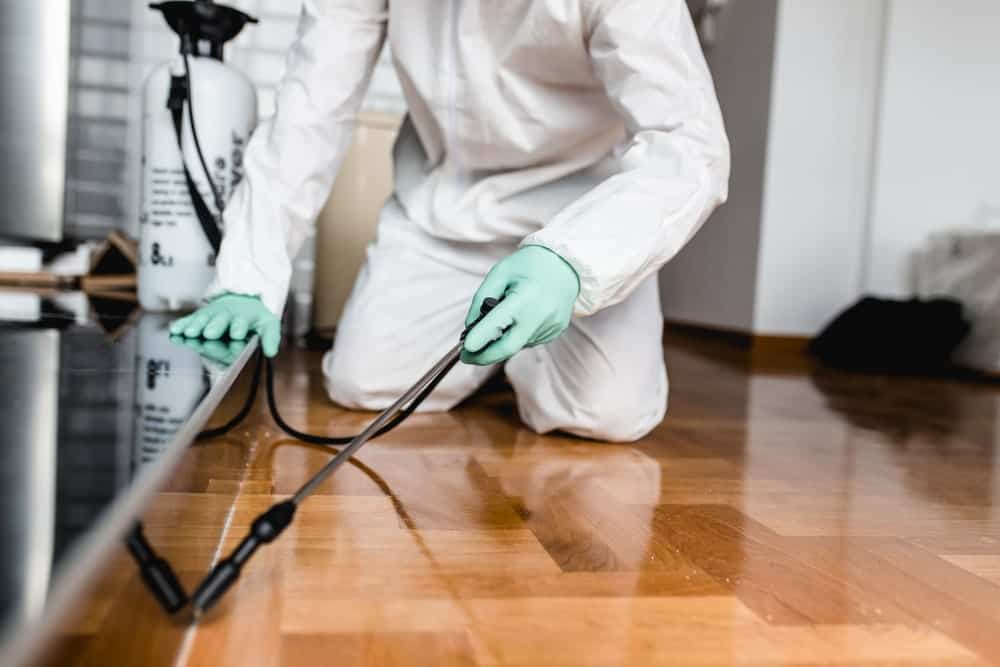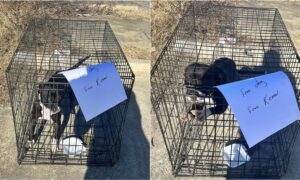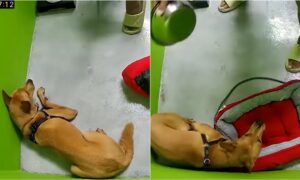“This post contains affiliate links, and I will be compensated if you make a purchase after clicking on my links.”
If you’re using pesticides, insecticides, and rodenticides to control pests in your home, you could be putting your pets at risk, too.

According to the ASPCA, rodenticides and insecticides are among the top ten household toxins that poison pets every year. Most recent data from the ASPCA Animal Poison Center (APCC) estimates that of the 213,773 cases received, rodenticides and insecticides made up 12.5% of incidents in 2018. The Pet Poison Helpline also reports that rodenticides “always rank within the top 5 cases” managed by the helpline annually.
March is Pet Poison Prevention month, with special observance starting the week of March 16th, which is dedicated to Poison Awareness Week. Kari Warberg Block, Pest Prevention Expert and CEO/Founder of plant-based pest control company EarthKind®, seeks to educate and urge pet owners to think twice before using harmful chemicals in the home that seriously threaten a pet’s health and safety.
“What many homeowners may forget when using poisonous pest control methods is that rodenticides and insecticides can be just as toxic, and appetizing, to your four-legged friends as they are to the pest,” she states. “A pet’s curious nature automatically puts them at risk, and depending on the active ingredient used, poisoning symptoms may not appear for three to five days,” notes Warberg Block.
The active ingredient type and concentration determine the severity of poisoning the pet will endure. Long-lasting anticoagulants (LAACs) are the most used active ingredients in rodenticides and prevent an animal’s blood from clotting, causing a slow death from internal bleeding. Other active ingredients include Cholecalciferol, which can cause acute kidney failure in pets, and Bromethalin, which can lead to brain swelling, tremors, and seizures in animals. Typical symptoms of poisoning to look out for include lack of coordination, lethargy, vomiting, poor appetite, pale gums and difficulty breathing.
“If you think your pet has been poisoned, call your vet or the Pet Poison Helpline immediately. If possible, locate the box of the pest control product to help them identify the active ingredient ingested.”
But Warberg Block warns that it’s not only direct contact with pesticides that is risky. “Pets are great pest catchers, so they also run the risk of secondhand poisoning from the pest itself,” she explains, “In many cases, rodents are still active for a few days after ingesting poison, leaving pets at risk of poisoning too. If the rodent escapes outside, this threatens wildlife poisoning up the food chain, something that’s been happening all too frequently,” she states.
With Spring around the corner, Warberg Block notes that there will be no shortage of pests this year. Rather than filling the home with poisons, she recommends natural methods such as sealing cracks in windows, doors, and walls with caulk or weatherstrip, transferring dry food into airtight containers, fixing any leaks, and cleaning up areas where pet food may be present in order to adequately eliminate attractants that lure pests in.
Warberg Block created EarthKind to “preserve the good and prevent the rest,” determined to reduce consumer reliance on poisonous pest control products with its plant-based alternatives.
With product options for Rodents, Spiders, Ants and Moths, all EarthKind® products are safe for use around pets and children when used as directed. “My intention is to always work in harmony with our planet, using the power of nature to keep pests out of the home, without poisons, in order to protect what’s inside. Our four-legged friends deserve to live in a safe environment, let’s all make a conscious effort to create one for them!”
If you think your pet has ingested any poison, call the Pet Poison Helpline immediately at 855-764-7661 or go to www.petpoisonhelpline.com.














